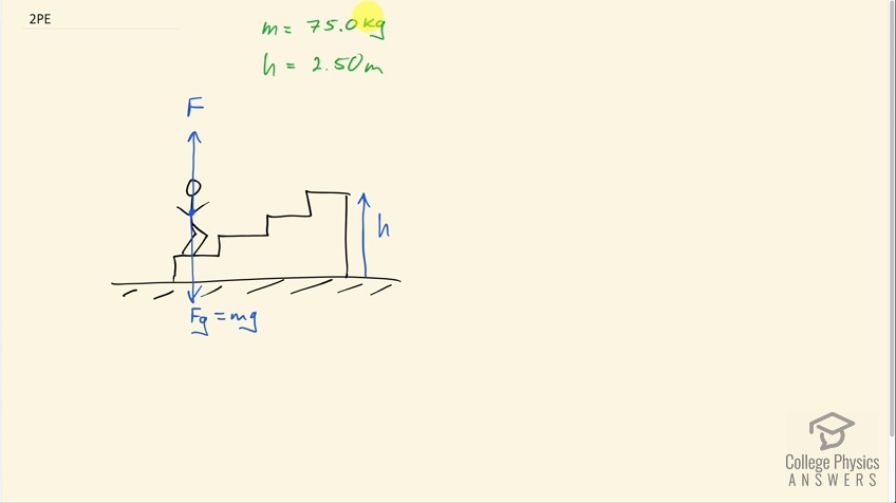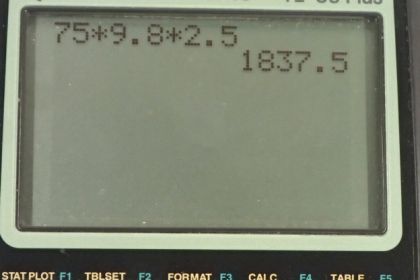Question
A 75.0-kg person climbs stairs, gaining 2.50 meters in height. Find the work done to accomplish this task.
Final Answer
Solution video
OpenStax College Physics for AP® Courses, Chapter 7, Problem 2 (Problems & Exercises)

vote with a rating of
votes with an average rating of
.
Calculator Screenshots
Video Transcript
This is College Physics Answers with Shaun Dychko. Question asks how much work is done when this person climbs the stairs of height 2.5 meters and they have a mass of 75.0 kilograms. Well there are a few assumptions that the question is making: first they are assuming that it's the work done by the person that we are interested in because the total work done, if you consider the person and gravity, is zero because the amount of work that the person does— which is positive—is equal to the amount of work that the gravity is doing—which is negative. Okay! Anyway so we assume that its the work done by the person that we are interested in and we also assume that the person is going at constant speed that's important because that means this force upwards that they are applying to get themselves up the stairs is equal in magnitude to the gravity. So two assumptions that are not explicitly written in the question but you have to be aware of them. Okay! So the work done by the person climbing the stairs at constant speed. So work is the force applied and the component of which is parallel to the displacement and in this case, the displacement is straight up and this force that they are applying is straight up. We assume that there's no force going sideways anymore; there would have been a sideways force to begin with, you know, on the ground here to get them up to speed horizontally but now once they have some horizontal speed, we assume that there is no need for any more force horizontally. Okay! So the only force then is straight up and then that force is gonna be equal to gravity downwards and the displacement is equal to this height h that they are going up and we plug in numbers. So 75.0 kilograms times 9.8 newtons per kilogram times 2.50 meters and this makes 1.84 times 10 to the 3 joules of work done.
